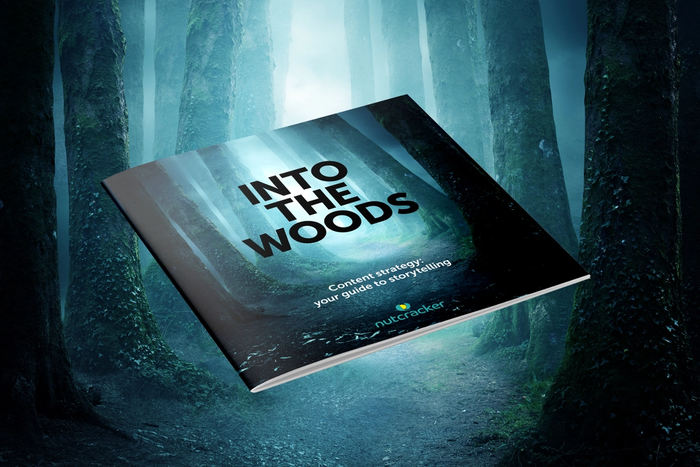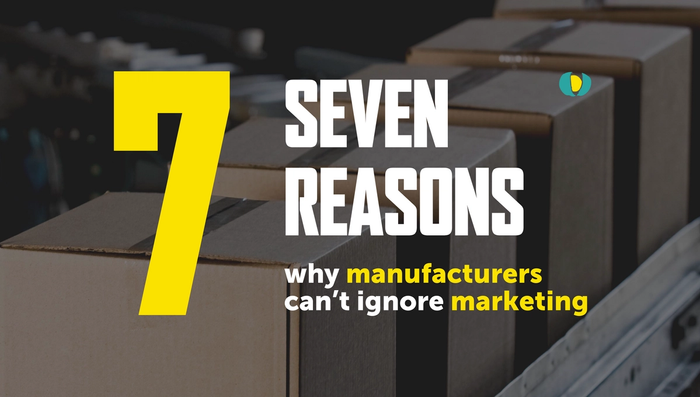Content Marketing & SEO
Top tips for brilliant content marketing with Doug Kessler
Our head of content Charlotte pins down Nutcracker’s former creative advisor (and content marketing guru) Doug Kessler, and asks: “what’s the secret to brilliant content marketing?”
Doug Kessler co-founded his marketing company, Velocity Partners, in 2001. A content marketing guru, he writes passionately on the subject and has produced three must-read guides, including “Crap. Why the single biggest threat to content marketing is content marketing”.
How would you describe good content marketing?
A good piece of B2B content marketing captures a company’s expertise and experience, packages it up, and helps their prospects do their jobs better. If it’s B2C then the focus will be on helping prospects enjoy their lives more.
Instead of selling what you do, you sell what you know.
What advice would you give to an SME planning a content marketing campaign?
Don’t overthink it. Do start with a strategy, but answer some basic questions too. Start by just getting a piece out there – do a content marketing piece and begin to understand how it works in your market and how your prospects work with it. Ask yourself: ‘How can I help somebody do their job? How can I answer their questions?’ Start capturing your knowledge in a way that will help.
Capture your belief and passion too, take on issues! Be risky, don’t stay under the radar – sticking with the status quo is a big danger.
Content marketing for me is a lot more fun than traditional marketing. It’s about opening a dialogue and serving your prospects. You’re serving them, and it’s a much better way to engage with somebody. Instead of fending you off, they’ll engage with you – it’s a much easier way to move through the purchase cycle.
What shouldn’t SMEs do when content marketing?
Traditional marketers still talk about themselves but they just disguise it! Then, when they realise they need to talk about what their prospects care about, they go to the other extreme and talk about issues they have no authority on. You need to find the sweet spot where you’re knowledgeable about something, which still appeals to your prospects.
What trends in content marketing are you currently seeing?
Content marketing is continually evolving to become more granular, more targeted and focused. Companies are increasingly competing, so they have to be more niche and targeted with their campaigns.
B2B brands are starting to target disciplines and vertical markets – they’re segmenting their content. This increases relevance – so it can’t be bad. It may increase the cost, there may be more work involved, but these pieces should work harder for the brand.
Anything else to watch?
Immersive experiences. Think more involving, engaging and use of XR technologies.
Aren’t these campaigns expensive?
They don’t have to be expensive, no. SlideShare for instance is a wonderful medium – it can be very visual and very graphics-based. You can put up a 90-page presentation, but actually make it a very fast reading experience. SlideShare breaks the print paradigm. Small businesses can do a great slide share for no money, and it can go wild!
There are platforms too, such as Prezi, where a small business can jump right in and make a dynamic screen-based presentation. Before it was all print-based stuck on to the screen, as pdfs or blog post, but now there’s so much more.
Can you name some great examples of content marketing?
Yes! It goes back a few years but terrific examples include Chipotle Mexican Grill’s four-part miniseries about the excess of agriculture in a B2C context. And American Express has the ‘Open Forum’, which is a small business portal that’s now massive. They started by hiring people to write about small business issues, then opened it out to encourage business owners to talk about issues and give advice.
Any bad ones?
Again, dated, but Microsoft’s ‘Throw a Windows 7 Party’. Google it, it’s excruciating.
How has content marketing evolved in recent years?
Content marketing is an old discipline, it’s been around for more than 100 years. Joe Pulizzi of the Content Marketing Institute often refers to the example of The Furrow – a branded farming magazine published by the tractor company Deere & Company, that’s been around since 1895.
So what changed?
For a long time, B2B marketing was the sleepy backwater of advertising – then some major changes occurred. First of all the internet arrived, bringing with it the digitisation of content marketing. When it became digital it became new – everything changed – how we measure it, how we make it, a new discipline was born from smashing together old school content marketing with digital.
Then marketing automation software like HubSpot was developed, and lead nurturing as a practice really came into its own. It became about automating market interactions, flows and nurture flows leading prospects through longer sales cycles until they become sales ready – these practices overhauled the discipline of content marketing.
And of course the ability to measure everything we do with analytics, we could measure the impact much better.
Finally, what’s happened to traditional marketing?
Traditional marketing is still around. Content marketing hasn’t replaced traditional marketing – it's transformed it. Some of the old traditional skills, like media planning and media buying are still needed. The core skills of marketing, which are about empathy, are still there – but they don’t play the same role they used to. So you might have to advertise again, but you’ll be advertising your content instead of your product. You’ll be advertising to people and you’ll have no idea where they are in the purchase cycle.
If you need to know more about how to best reach your target audience, contact us today, Nutcracker are here to help.
Share this:




